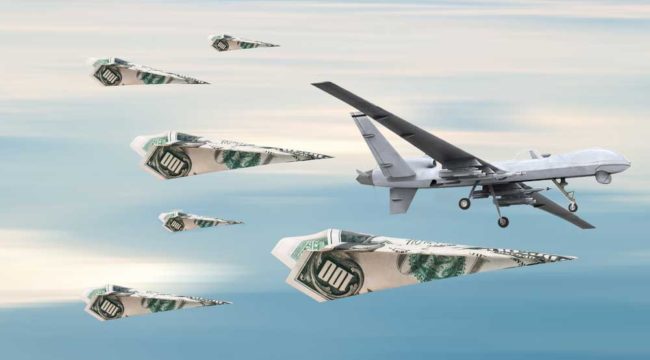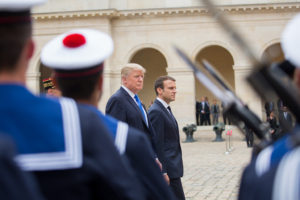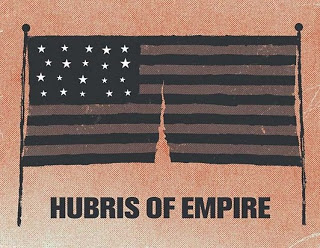It was said that “the guinea and the gallows” were the true instruments of British imperial power.
The guinea represented the coined wealth of Great Britain.
The gallows represented its… constabulary zeal in policing restless natives.
This is the 21st century of course… a time of enlightenment.
Today’s instruments of imperial power are no longer the guinea and the gallows.
No. Today’s instruments of imperial power are “the dollar and the drone.”
The dollar and the drone are America’s weapons.
Like the 19th-century pound (which replaced the guinea), today’s dollar is the world’s reserve currency.
Like the 19th-century pound, the dollar finances some two-thirds of global trade.
And the gallows?
Britain hanged its foreign trouble. America explodes its own in drone attacks.
Here is civilization; here is progress.
The sun eventually sank on the British Empire… the gallows came down… and the pound lost its global reserve status.
The U.S. will have its drones. But is its other weapon, the dollar, close to losing global reserve status?
Recent developments may tell…
The global oil trade has centered on the dollar since 1974, when Saudi Arabia agreed to enthrone the dollar as currency of the oil market.
If it was oil you wanted… it was dollars you needed.
But now China — world’s top oil importer — is preparing to create an oil market that bypasses the dollar entirely.
The plan would let China buy oil from Russia and Iran with its own currency, the yuan.
But the yuan is not a major reserve currency like the dollar.
Under this plan, Russia and Iran would be able to swap yuan for an asset far more desirable than Chinese scraps of paper — gold itself.
Perhaps that explains why China’s been hoarding so much gold in recent years?
Jim Rickards says this system marks the beginning of the end for the petrodollar:
…click on the above link to read the rest of the article…













